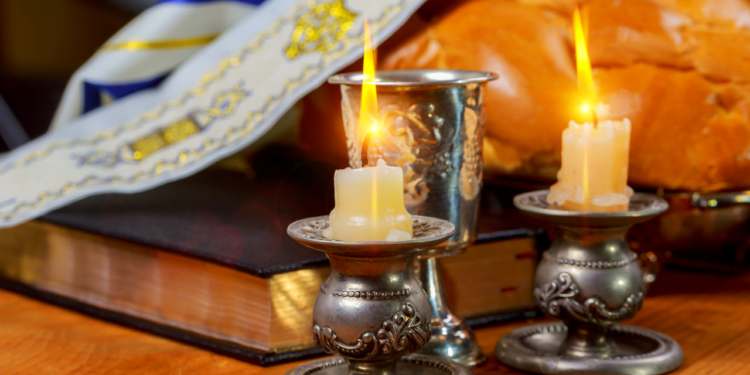No products in the cart.
Different Christian Denominations and Their Sabbath Practices
This post contains affiliate links.
Christianity, as one of the largest religions in the world, encompasses a wide array of denominations, each with its unique beliefs and practices, including the observation of the Sabbath.
The Sabbath, traditionally seen as a day of rest and worship, holds varying degrees of importance across different Christian groups. Let’s delve into the distinct practices regarding the Sabbath within some major denominations:
Catholic Church
In the Catholic tradition, the observance of the Sabbath, known as Sunday or the Lord’s Day, is considered a holy day of obligation. Catholics are expected to attend Mass on Sundays to commemorate the resurrection of Jesus Christ. This day of rest and worship is a central pillar of the Catholic faith and is meant for prayer, reflection, and spending time with the community.
Protestantism
Protestant denominations, encompassing a broad spectrum of beliefs, typically observe Sunday as the Sabbath but with different practices. Some Protestant groups, like Lutherans and Anglicans, uphold traditional Sunday observance similar to Catholics. Conversely, many evangelical and non-denominational Protestants focus more on personal interpretations of Sabbath observance, emphasizing rest, family time, and individual study or prayer.
Orthodox Christianity
In Orthodox Christian traditions, the Sabbath is called the Lord’s Day and is observed on Sunday. The Divine Liturgy is central to the Orthodox Christian Sabbath observance, emphasizing communal worship, hymns, and sacraments. Fasting and abstinence from certain foods are today’s standard spiritual discipline.
Seventh-day Adventists
Seventh-day Adventists are distinctive in their observance of the Sabbath on Saturday, the seventh day of the week, as stipulated in the Bible. They believe in resting from worldly activities, attending church services, engaging in fellowship, and studying the Bible on Saturdays. The Sabbath holds special significance for Seventh-day Adventists as a day of spiritual rejuvenation and connection with God.
Across various Christian denominations, the observance of the Sabbath serves as a time for spiritual renewal, worship, and reflection. While practices may differ, the underlying principle of setting aside dedicated time for God remains a common thread woven through the tapestry of Christian beliefs and traditions. Understanding these diverse practices sheds light on the rich tapestry of Christian worship and devotion.
Historical Origins of Sabbath Observance in Christianity
The observance of the Sabbath holds significant importance in the history and traditions of Christianity, tracing back to the time of the early church. Various Christian denominations have distinct practices and beliefs regarding Sabbath observance, influenced by their interpretation of biblical teachings and historical contexts.
Historical Origins of Sabbath Observance in Christianity
Observing the Sabbath in Christianity finds its roots in Jewish tradition and Jesus Christ’s teachings as recorded in the New Testament. In the Old Testament, the Sabbath was established as a day of rest and worship, setting it apart as holy (Genesis 2:2-3). Jesus affirmed the importance of the Sabbath, stating that it was made for man’s benefit (Mark 2:27). Early Christians, many of whom were Jewish converts, continued to observe the Sabbath along with the Lord’s Day, commemorating the resurrection of Jesus on Sunday.
Variations in Sabbath Observance Among Major Christian Groups
Christian denominations vary in their observance of the Sabbath. For example, Seventh-day Adventists observe the Sabbath from Friday sunset to Saturday sunset, considering it a day of rest, worship, and fellowship. On the other hand, most other mainstream Christian groups, such as Catholics, Protestants, and Eastern Orthodox, observe Sunday as the Lord’s Day and a day of rest and worship in honor of the resurrection of Jesus Christ.
The Significance of Sabbath Keeping in Various Christian Belief Systems
The significance of Sabbath observance differs among Christian belief systems. For some denominations, the Sabbath is a time for spiritual reflection, communal worship, and family bonding. It is a day to rest from secular activities and focus on one’s relationship with God and fellow believers. Other groups emphasize Sabbath observance’s moral and ethical aspects, promoting rest, social justice, and caring for those in need.
Modern Interpretations and Trends in Sabbath Observance within Christian Churches
In modern times, there has been a shift in the observance of the Sabbath among some Christian denominations. While many still uphold traditional practices, some churches have become more flexible in their approach to Sabbath observance. This flexibility reflects changing lifestyles, work patterns, and cultural norms in contemporary society.
Some Christians choose to set aside time for rest and worship on a day that best suits their schedules while still honoring the principles of the Sabbath.
The observance of the Sabbath in Christianity is a deeply rooted tradition that has evolved within different denominations. While practices may vary, the underlying significance of the Sabbath as a time for spiritual reflection, worship, and rest remains a common thread among Christian believers.
Variations in Sabbath Observance Among Major Christian Groups
Christian denominations vary in their practices regarding observing the Sabbath, reflecting diverse interpretations of scripture, tradition, and theological values. While some denominations observe the Sabbath on Saturday, following the tradition of the Jewish Sabbath, others observe it on Sunday to commemorate the resurrection of Jesus Christ. The variations in Sabbath observance among major Christian groups highlight the richness and complexity of Christian traditions.
Catholic Church: The Catholic Church observes Sunday as the day of rest and worship, considering it the Lord’s Day to honor the resurrection of Jesus. Mass attendance on Sundays is a central practice for Catholics, emphasizing the importance of communal worship and spiritual reflection. While the Catholic Church acknowledges the significance of the Sabbath, it emphasizes Sunday observance more.
Eastern Orthodox Church: Eastern Orthodox Christians also observe Sunday as the primary day of worship and rest. However, they maintain a strong connection to the Jewish Sabbath and some traditional practices, such as refraining from work and engaging in prayer and worship. The Eastern Orthodox Church’s liturgical calendar includes multiple feast days and periods of fasting, enriching the understanding of Sabbath observance within this tradition.
Protestant Denominations: Protestant denominations exhibit a wide range of practices regarding the Sabbath. Some, like Seventh-day Adventists and Seventh-day Baptists, observe the Sabbath on Saturday in continuity with the Jewish Sabbath tradition. These denominations emphasize rest, worship, and spiritual renewal on the Sabbath day, grounding their practices in a holistic understanding of faith and life. Other Protestant groups, such as Anglicans, Lutherans, and Methodists, observe Sunday as the day of worship, aligning with the broader Christian tradition.
Evangelical and Pentecostal Churches: Evangelical and Pentecostal churches often prioritize Sunday gatherings for worship and fellowship. While they may not adhere to strict Sabbath observance regarding rest and prohibition of work, these churches emphasize the importance of dedicating time to worship, prayer, and spiritual growth. Their approach to Sabbath observance reflects a blend of traditional practices and contemporary expressions of faith.
Non-denominational Churches: Non-denominational churches vary in their Sabbath practices, drawing from diverse Christian traditions and theological perspectives. Some non-denominational churches follow a more flexible approach to Sabbath observance, focusing on the spiritual significance of rest, worship, and community engagement rather than strict adherence to specific rules or traditions.
The variations in Sabbath observance among Christian denominations demonstrate the dynamic nature of faith and the diverse ways believers seek to honor God and nurture their spiritual lives. While the specific practices may differ, the underlying goal of Sabbath observance—to rest, worship, and draw closer to God—remains central across Christian traditions.
The Significance of Sabbath Keeping in Various Christian Belief Systems
The observance of the Sabbath holds a vital place within various Christian denominations, each with its unique practices and interpretations. Understanding the significance of Sabbath-keeping sheds light on the theological, historical, and cultural aspects that shape the beliefs and practices of these Christian groups.
In many Protestant denominations, such as the Seventh-day Adventist Church and some Baptist and Pentecostal churches, the Sabbath is observed on Saturday, following the tradition of the Jewish Sabbath. Sabbath observance is a day of rest and worship for these groups, commemorating God’s rest after creating the world in six days, according to the Book of Genesis.
On the other hand, most other Christian denominations, including Catholic, Orthodox, and many Protestant churches, observe the Sabbath on Sunday, known as the Lord’s Day. This change from Saturday to Sunday worship reflects the belief that Jesus Christ rose from the dead on the first day of the week, Sunday, making it a significant day for Christian worship and celebration.
The significance of Sabbath-keeping varies among these Christian belief systems. For some, the Sabbath is a time of strict rest and reflection, with restrictions on work and secular activities. For others, it is a day of communal worship, fellowship, and spiritual rejuvenation. The Sabbath serves as a time to connect with God and fellow believers and engage in acts of service and charity.
Despite these variations, the common thread among different Christian denominations is the recognition of the Sabbath as a sacred time set apart for honoring God, nurturing one’s spiritual life, and fostering community bonds. The observance of the Sabbath serves as a reminder of God’s creative and redemptive work and a symbol of hope, renewal, and anticipation of the eternal rest promised to believers.
In contemporary Christian churches, Sabbath observance continues to evolve as congregations adapt to changing societal norms and cultural preferences. Some churches emphasize the traditional aspects of Sabbath keeping, maintaining strict observance of rest and worship practices. Others have adopted more flexible approaches, allowing for a broader interpretation of the Sabbath in today’s fast-paced world.
The significance of keeping the Sabbath in various Christian denominations points to the rich tapestry of beliefs, traditions, and practices that shape the religious identity of these communities. Whether observed on Saturday or Sunday, the Sabbath remains a cornerstone of the Christian faith, providing believers with a sacred time to connect with God, reflect on spiritual truths, and find renewal in life’s demands.
Modern Interpretations and Trends in Sabbath Observance within Christian Churches
The observation of the Sabbath, a day of rest and worship, holds significant importance in various Christian denominations. While traditionally seen as a day of rest on Sunday for many Christians, there have been modern shifts and interpretations in Sabbath observance practices within Christian churches.
In recent years, some Christian denominations have started to reexamine the Sabbath practices and consider a return to observing it on Saturday, the original Sabbath day in the Jewish tradition. This shift is particularly prominent among Seventh-day Adventists, who believe in honoring the Sabbath on the seventh day of the week, aligning with the biblical account of creation.
Additionally, many traditional Sunday-observing Christian denominations emphasize the Sabbath’s spiritual significance beyond just a day of rest. They encourage believers to use the Sabbath for deeper spiritual reflection, communal worship, and acts of service. This trend aims to foster a more meaningful observance of the Sabbath in the fast-paced and busy modern world.
Some Christian communities also incorporate mindfulness and intentional rest into their Sabbath observance practices. This includes activities such as unplugging from technology, spending time in nature, practicing gratitude, and engaging in practices that promote holistic well-being.
Moreover, a growing movement within Christianity focuses on the importance of Sabbath observance not just every week but also as a lifestyle. This trend encourages believers to integrate the principles of rest, worship, and reflection into their daily lives, acknowledging the Sabbath to nurture their spiritual growth and connection with God.
The modern interpretations and trends in Sabbath observance within Christian churches reflect a desire to rediscover the true essence of the Sabbath beyond strict legalistic rules. By emphasizing spiritual renewal, community engagement, and holistic well-being, these trends aim to revitalize the practice of Sabbath observance and make it more relevant and transformative in the lives of believers today.
Key Takeaway:
This article delves into Christian denominations’ diverse landscape and practices concerning observing the Sabbath. It explores the historical roots of Sabbath observance in Christianity and uncovers the variations in Sabbath practices among major Christian groups. Furthermore, it sheds light on the significance of Sabbath keeping in different Christian belief systems and highlights modern interpretations and trends in Sabbath observance within Christian churches.
Throughout history, the Sabbath has played a crucial role in Christian worship, with different denominations adopting varied approaches to its observance. For instance, the Seventh-day Adventist Church reveres Saturday as the Sabbath, while most other Christian groups, such as Catholics and Protestants, observe Sunday as a day of rest and worship. Despite these differences, the underlying principle of setting aside a day for spiritual reflection and rest remains a common thread across denominations.
The origins of Sabbath observance in Christianity can be traced back to the Old Testament commandment to remember the Sabbath day and keep it holy. Over time, this practice evolved within different Christian traditions, leading to distinct ways of honoring the Sabbath. Some denominations emphasize strict observance, prohibiting activities like working or shopping on the Sabbath. In contrast, others adopt a more relaxed approach, focusing on the spiritual significance of rest and worship.
The significance of Sabbath keeping in various Christian belief systems extends beyond a mere day of rest; it symbolizes a deeper connection to God and a commitment to spiritual renewal. For many Christians, observing the Sabbath provides a sacred space for worship, fellowship, and reflection, reminding them of God’s presence.
In the modern context, there is a growing trend towards reevaluating Sabbath observance within Christian churches. Some denominations are exploring innovative ways to integrate ancient traditions with contemporary practices to make the Sabbath more relevant and meaningful to today’s believers. This adaptability reflects the dynamic nature of faith and the ongoing evolution of religious practices within the Christian community.
Conclusion
As we have explored the diverse landscape of Christian denominations and their practices regarding the observation of the Sabbath, it is evident that there is a rich tapestry of traditions and beliefs surrounding this day of rest. From the historical origins rooted in the Old Testament commandments to the modern interpretations and trends shaping contemporary Sabbath observance, each denomination brings its unique perspective to the observance of this sacred day.
The Sabbath holds deep spiritual significance for many Christian belief systems, serving as a day of worship, reflection, and spiritual renewal. For some denominations, such as the Seventh-day Adventists and Seventh-Day Baptists, observing the Sabbath on Saturday is a key tenet of faith, honoring the tradition of resting on the seventh day of the week as outlined in the Bible.
On the other hand, many mainstream Christian groups, including Catholics, Protestants, and Orthodox Christians, observe the Sabbath on Sunday, commemorating the Resurrection of Jesus Christ.
Despite variations in the day of observance, the underlying principles of rest, worship, and community remain at the core of Sabbath practices across denominations. Churches may hold services, engage in prayer and meditation, participate in communal meals, or refrain from work to honor the Sabbath and connect with their faith on a deeper level.
In modern times, there has been a shift in how some Christian denominations approach Sabbath observance. With changing societal norms and demands, some churches have adapted their practices to accommodate busy schedules and evolving priorities. While traditional observances remain strong in many communities, there is a growing emphasis on balancing work, rest, and spiritual devotion in today’s fast-paced world.
As we look to the future, it is clear that the observance of the Sabbath will continue to evolve within Christian churches, reflecting congregants’ changing needs and preferences. Whether it is a traditional Sabbath service steeped in centuries-old customs or a contemporary gathering incorporating innovative worship styles, the essence of the Sabbath as a day of rest and reflection remains a fundamental aspect of Christian faith for believers worldwide.
Observing the Sabbath is a cornerstone of the Christian faith, uniting believers across denominations in a shared commitment to honoring God and nurturing their spiritual lives. While practices may vary among Christian groups, setting aside a day for worship, rest, and community remains a central theme that unites believers in their devotion to God.
As we continue to navigate the complexities of modern life, the Sabbath serves as a timeless reminder of the importance of pausing, reflecting, and connecting with the divine in a world that is constantly in motion.
This post contains affiliate links.












